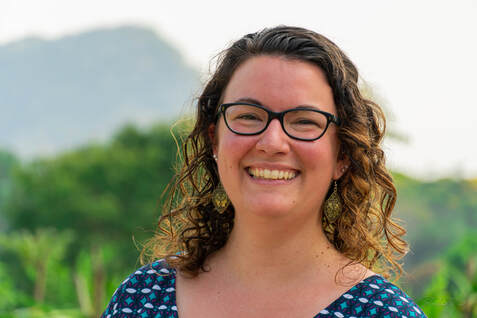|
My name is Dr. Catherine Alves (she/her) and I am a marine ecologist, social scientist and environmental advocate.
I am currently Save The Bay's South County Coastkeeper, where I lead advocacy initiatives on climate change, water pollution, and public access in southern Rhode Island. I collaborate with municipal, state, and federal agencies and local stakeholders to conduct long-term watershed monitoring, advocate for green infrastructure, and develop and implement habitat restoration plans to improve coastal resilience. I am also a 2022 Fellow in New Leaders Council Rhode Island, and the co-founder of the Northeast Climate-Resilient Fisheries Network (NECRFN). |
My research interests focus on coral reef ecology, social-ecological systems, sustainable fisheries management, and stakeholder engagement. I have worked in Mexico, Belize, and the northeast United States to combine social science with ecology to inform improved management of marine ecosystems. I value connecting academics, natural resource managers, and communities to achieve shared conservation and sustainability goals.
I have made it a priority to promote diversity, equity and inclusion within academic research, higher education, and the marine sciences. My pursuit of interdisciplinary research comes from recognizing that marine conservation efforts must include diverse voices and perspectives while integrating the natural and social sciences. I am committed to actively learning about how I can become more engaged in antiracism efforts within my daily life and work practices, while showing up as an ally to under-represented and marginalized groups. I am constantly learning and improving how I can promote diversity and inclusion in my field through scholarship, mentorship, and education.
Outside of work, I enjoy paddle-boarding, kayaking, crafting, and enjoying food with family and friends.
I have made it a priority to promote diversity, equity and inclusion within academic research, higher education, and the marine sciences. My pursuit of interdisciplinary research comes from recognizing that marine conservation efforts must include diverse voices and perspectives while integrating the natural and social sciences. I am committed to actively learning about how I can become more engaged in antiracism efforts within my daily life and work practices, while showing up as an ally to under-represented and marginalized groups. I am constantly learning and improving how I can promote diversity and inclusion in my field through scholarship, mentorship, and education.
Outside of work, I enjoy paddle-boarding, kayaking, crafting, and enjoying food with family and friends.
